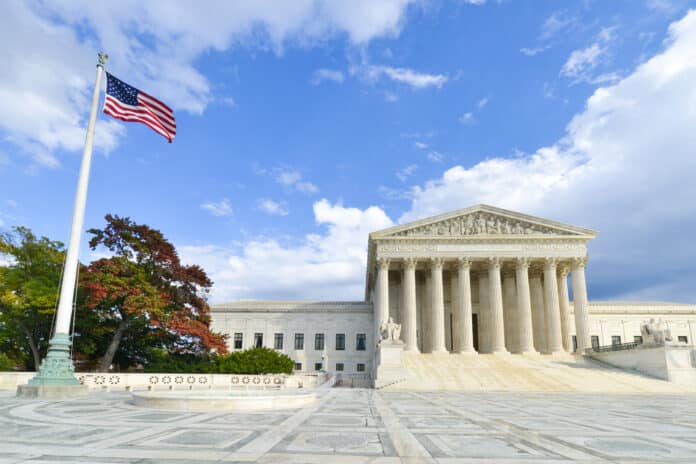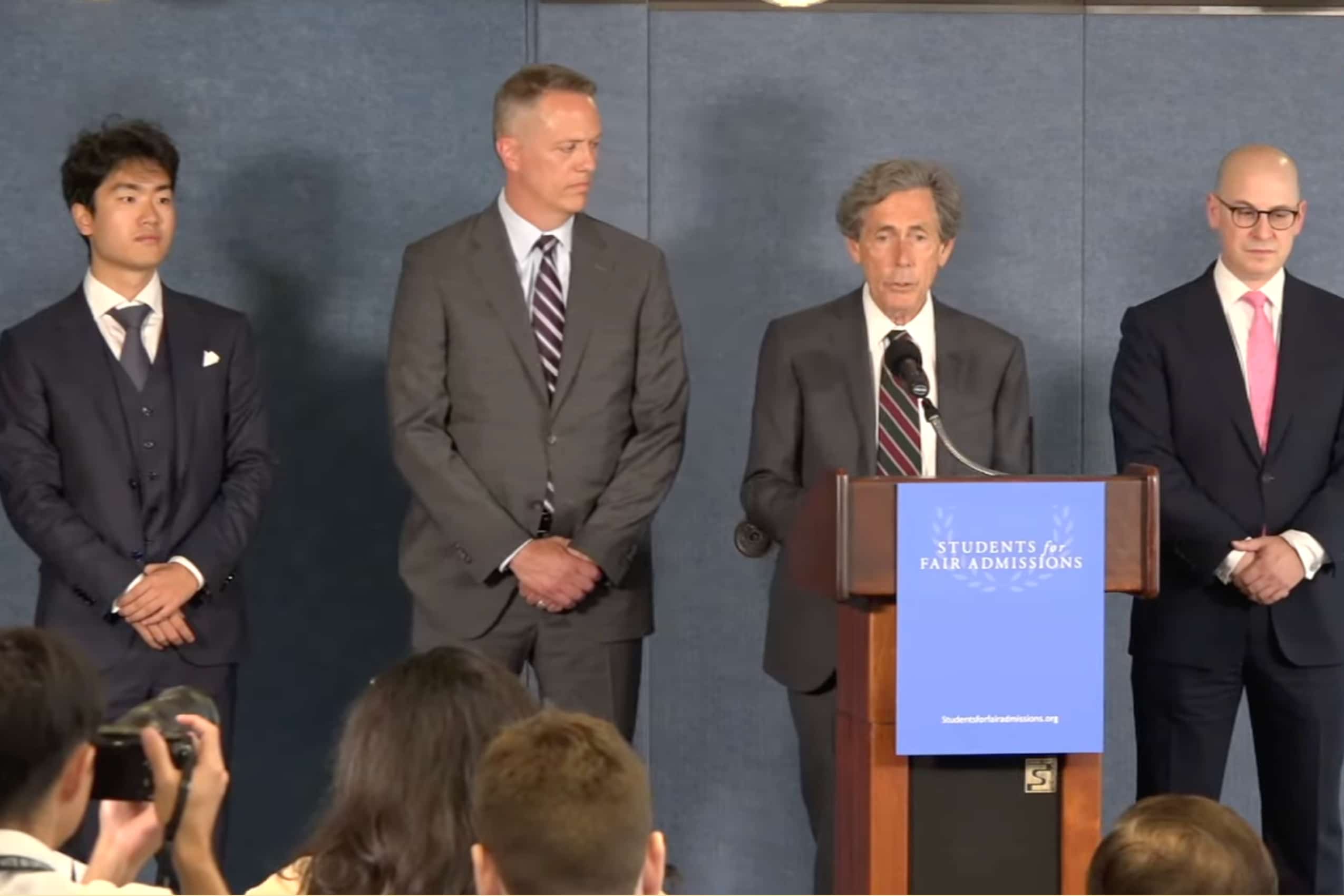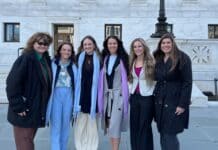
Minnesota’s Office of Higher Education appeared to indicate it will conduct business as usual in response to the U.S. Supreme Court’s ruling that universities can no longer consider race in the admissions process.
In a 6-3 ruling last week, SCOTUS struck down affirmative action. The ruling, in theory, should change the way Minnesota universities decide who will be admitted to their schools.
However, the Minnesota Office of Higher Education is signaling the ruling won’t change much.
“Today’s ruling on Affirmative Action from the U.S. Supreme Court does not change Minnesota’s commitment to serving all students. We know representation matters. Inclusivity matters. Being the first generation in your family to go to college matters,” Office of Higher Education Commissioner Dennis Olson said in a press release.
“Our efforts in Minnesota to close attainment gaps for historically excluded populations will remain a focus for the Office of Higher Education,” he added.
He said his office will “continue working toward our statewide attainment goal of having 70 percent of Minnesotans, age 25 to 44, obtain a postsecondary certificate or degree; and will not consider this goal met until it is achieved both overall and by every population.”
“Every person in Minnesota is college material. I will continue partnering with our colleges and universities to ensure higher education in Minnesota is inclusive and equitable,” he concluded.
Macalester College President Suzanne Rivera echoed Olson’s sentiment.
“At Macalester, assembling a diverse student body will remain a top priority and, though we are concerned about the effects of today’s SCOTUS ruling, we are prepared to do everything possible to ensure that the opportunity of a Macalester education remains accessible to everyone,” she tweeted.
It’s unclear exactly what this will look like in practice, but if it involves “racial preferences,” some groups are prepared to sue.
“If, however, the commissioner is saying his office will continue to implement and pursue racial preferences, the UMLC will sue in every case to overturn them and enforce equality under the law and merit-based, not race-based, decision-making by colleges and universities and every public entity,” said Doug Seaton, president of the Upper Midwest Law Center.
‘Direct proxies’
Several Minnesota universities, including Macalester, signed on to an amicus brief last fall in support of maintaining affirmative action. However, they will no longer be able to use race to give minority applicants an automatic boost in admissions decisions.
The ruling will not stop universities from trying to get away with “nonsense,” and the war is far from over, according to Wai Wah Chin, an adjunct fellow at the Manhattan Institute and founding president of the Chinese American Citizens Alliance of Greater New York (CACAGNY).
“This is an amazing time,” Chin said. “We’re not at the end of the war yet, but we have won a significant battle.”
The ruling came as the result of a case brought by Students for Fair Admissions (SFFA) led by Edward Blum, a conservative activist who aims to eliminate the use of racial and ethnic classifications in college admissions. CACAGNY supported SFFS from district court to the Supreme Court with amicus briefs.

SFFA accused Harvard and the University of North Carolina (UNC) of discrimination against Asian students because qualified students were being denied admission.
“In the discovery during the course of the case, information came out that showed how Asians had to have hundreds of points higher on the SAT to get in, more than the whites, more than the Hispanics, more than the blacks by hundreds of points,” Chin said.
She said all races owe Blum a “great debt of gratitude” for fighting for individuals to not be judged by their race.
Reacting to the ruling, Blum said universities have an obligation to remove “all racial and ethnic classification boxes from undergraduate and postgraduate application forms.”
“Furthermore, the administrators of higher education must note: The law will not tolerate direct proxies for racial classifications. For those in leadership positions at public and private universities, you have a legal obligation to follow the letter and the spirit of the law,” he said.
‘Punishing people because of race’
Chin said the decision is extremely important for the country, which should be focused not on equal outcomes but equal rights.
She said the distortion, manipulation, and corruption of the intent of affirmative action has hurt a lot of people.
“We can’t keep pretending that everyone is the same,” Chin said.

Chin said she has not read the entire 237-page decision but has learned admissions officers at Harvard would deny admission of Asian students by citing “no personality” as the reason.
“If there was a kid with a significantly less score that was a black kid, for instance, they would admit that kid. In fact, they said they found that blacks had the best personality … they had the worst academic scores and the best personality,” Chin said. “I haven’t read all of the documents, but we know how flawed the thinking was before and how we have to make sure that we do not discriminate.”
The decision returns the country to what it is supposed to be doing, she said.
“We should not be punishing people because of race,” she commented.
The court rejected affirmative action because it boils down to “outright racial balancing,” and called it “patently unconstitutional,” according to James Dickey, senior counsel at UMLC.
The Supreme Court’s decision in the Harvard and UNC cases returns college admissions to the “colorblindness” required by the Constitution, Dickey said.
“It is a direct rejection of Critical Race Theory, antiracism, and other ‘woke’ ideologies that support discrimination against non-minority people to somehow atone for past injustice,” he said. “In the decisions today, the Court expressly rejected the universities’ reliance on claimed interests in ‘training future leaders, acquiring new knowledge based on diverse outlooks, promoting a robust marketplace of ideas, and preparing engaged and productive citizens’ to justify affirmative action.”
Sheila Qualls
Sheila Qualls is an award-winning journalist and former civilian editor of an Army newspaper. Prior to joining Alpha News, she was a Christian Marriage and Family columnist at Patheos.com and a personal coach. Her work has been published in The Upper Room, the MOPS blog, Grown and Flown, and The Christian Post. She speaks nationally on issues involving faith and family.










